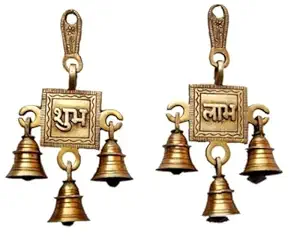परिचय:
करणी माता मंदिर, भारत के सबसे अनोखे मंदिरों में से एक है, जो राजस्थान के बीकानेर के पास स्थित देशनोक नामक स्थान पर है। यह मंदिर चूहों के मंदिर के नाम से प्रसिद्ध है, जहाँ लगभग 25,000 काले चूहे रहते हैं और उन्हें पवित्र माना जाता है।
इतिहास और कथा:
करणी माता को दुर्गा माता का अवतार माना जाता है। मान्यता है कि जब उनके सौतेले पुत्र लक्ष्मण की मृत्यु हुई, तो उन्होंने यमराज से उन्हें जीवित करने की प्रार्थना की। जब यमराज ने मना किया, तो करणी माता ने अपने दिव्य शक्ति से उन्हें और अपने वंशजों को चूहे के रूप में पुनर्जन्म दिया।
वास्तुकला:
इस मंदिर की वास्तुकला मुगल शैली में है। इसमें चांदी के दरवाज़े, संगमरमर की नक्काशी, और बारीक कारीगरी देखने को मिलती है। चूहों के लिए विशेष प्रबंध किए गए हैं।
पवित्र चूहे:
यहाँ के चूहे "काब्बा" कहलाते हैं और इन्हें मंदिर में खाना खिलाया जाता है। यदि कोई सफेद चूहा दिखाई देता है, तो उसे शुभ संकेत माना जाता है।
धार्मिक आयोजन:
-
नवरात्रि मेलों में लाखों श्रद्धालु दर्शन के लिए आते हैं।
-
दैनिक पूजा, आरती, और भजन आयोजित होते हैं।
-
चूहों द्वारा खाया गया भोजन प्रसाद माना जाता है।
दर्शन जानकारी:
-
स्थान: देशनोक, बीकानेर, राजस्थान
-
समय: सुबह 5:00 बजे से रात 10:00 बजे तक
-
प्रवेश शुल्क: नि:शुल्क
-
उत्तम समय: अक्टूबर से मार्च
खास बातें:
-
इतने चूहों के बावजूद कभी किसी रोग का प्रकोप नहीं हुआ।
-
मंदिर में नंगे पाँव प्रवेश करना होता है।
-
दुनिया भर से पर्यटक इसे देखने आते हैं।
निष्कर्ष:
करणी माता मंदिर एक आध्यात्मिक, रहस्यमय और अनूठा अनुभव है, जहाँ आस्था और प्रकृति का अनोखा संगम देखने को मिलता है।
Overview of Karni Mata Temple
Historical Background
Karni Mata Temple in Rajasthan is famous for its population of rats, revered as holy beings and linked to the legend of Karni Mata.
Religious Significance
The temple is an important pilgrimage site where devotees believe that feeding and respecting rats brings blessings and prosperity.
Main Deity
The temple is dedicated to Karni Mata, a female deity believed to be an incarnation of Goddess Durga, worshipped for protection and blessings.
Visitor Popularity
Thousands of devotees and tourists visit the temple each year to witness the unique sight of holy rats living within the temple premises.
Cultural Significance
The temple represents the blend of local folklore, devotion, and cultural traditions of Rajasthan.
Temple Architecture & Layout
Sanctum & Inner Shrine
The sanctum houses the idol of Karni Mata with silver-plated gates, surrounded by hundreds of sacred rats.
Temple Halls & Corridors
Corridors and halls allow devotees to move freely among the temple’s holy rats and participate in rituals.
Entrance & Courtyard
The entrance is adorned with carvings and leads into a courtyard where devotees offer food to the rats.
Unique Features
Marble flooring, silver doors, and intricate idols make the temple architecturally and spiritually unique.
Pilgrim Pathways
Devotees follow marked pathways to avoid disturbing the sacred rats and ensure respectful darshan.
Rituals & Worship Practices
Daily Pujas
Daily pujas include offering milk, sweets, and grains to the rats, considered acts of devotion and blessings.
Festivals & Special Days
Chaitra and Navratri festivals are celebrated with grandeur, attracting devotees to witness special rituals and blessings.
Feeding the Rats
Devotees feed holy rats with sweets, grains, and milk, believing it will bring good fortune and spiritual merit.
Chanting & Offerings
Sacred chants and offerings are made to both Karni Mata and her sacred rats, invoking divine protection.
Community Participation
Devotees collectively engage in rituals, feeding, and cleaning activities, ensuring the temple remains sacred and orderly.
Legends & Spiritual Stories
Origin of Karni Mata
According to legend, Karni Mata was an incarnation of Goddess Durga and blessed her devotees by reincarnating them as rats to protect their souls.
Miracles & Blessings
Stories of devotees receiving protection, healing, and prosperity are linked to the temple and its sacred rats.
Mythological Significance
The temple symbolizes divine intervention and respect for all creatures, emphasizing Karni Mata’s compassion.
Teachings & Beliefs
Devotion, compassion for animals, and faith in divine protection are key teachings associated with Karni Mata Temple.
Historical Patronage
Local rulers and devotees historically supported the temple, ensuring preservation of traditions and the unique rat population.
Visitor Information
How to Reach
Karni Mata Temple in Deshnok, Rajasthan, is accessible via Bikaner airport and local transport, making it convenient for pilgrims and tourists.
Best Time to Visit
Visit during festivals or early morning hours to witness rituals and the activity of sacred rats comfortably.
Facilities & Amenities
The temple provides guidance, resting areas, and food offerings for devotees, ensuring a pleasant visit.
Nearby Attractions
Explore Bikaner forts, desert landscapes, and local markets while visiting the Karni Mata Temple.
Travel Tips
Respect temple rules, avoid harming rats, wear appropriate attire, and plan your visit to coincide with rituals for the best experience.
Karni Mata Temple in Rajasthan is famous for its population of rats, revered as holy beings and linked to the legend of Karni Mata.
The temple is an important pilgrimage site where devotees believe that feeding and respecting rats brings blessings and prosperity.
The temple is dedicated to Karni Mata, a female deity believed to be an incarnation of Goddess Durga, worshipped for protection and blessings.
Thousands of devotees and tourists visit the temple each year to witness the unique sight of holy rats living within the temple premises.
The temple represents the blend of local folklore, devotion, and cultural traditions of Rajasthan.
The sanctum houses the idol of Karni Mata with silver-plated gates, surrounded by hundreds of sacred rats.
Corridors and halls allow devotees to move freely among the temple’s holy rats and participate in rituals.
The entrance is adorned with carvings and leads into a courtyard where devotees offer food to the rats.
Marble flooring, silver doors, and intricate idols make the temple architecturally and spiritually unique.
Devotees follow marked pathways to avoid disturbing the sacred rats and ensure respectful darshan.
Daily pujas include offering milk, sweets, and grains to the rats, considered acts of devotion and blessings.
Chaitra and Navratri festivals are celebrated with grandeur, attracting devotees to witness special rituals and blessings.
Devotees feed holy rats with sweets, grains, and milk, believing it will bring good fortune and spiritual merit.
Sacred chants and offerings are made to both Karni Mata and her sacred rats, invoking divine protection.
Devotees collectively engage in rituals, feeding, and cleaning activities, ensuring the temple remains sacred and orderly.
According to legend, Karni Mata was an incarnation of Goddess Durga and blessed her devotees by reincarnating them as rats to protect their souls.
Stories of devotees receiving protection, healing, and prosperity are linked to the temple and its sacred rats.
The temple symbolizes divine intervention and respect for all creatures, emphasizing Karni Mata’s compassion.
Devotion, compassion for animals, and faith in divine protection are key teachings associated with Karni Mata Temple.
Local rulers and devotees historically supported the temple, ensuring preservation of traditions and the unique rat population.
Karni Mata Temple in Deshnok, Rajasthan, is accessible via Bikaner airport and local transport, making it convenient for pilgrims and tourists.
Visit during festivals or early morning hours to witness rituals and the activity of sacred rats comfortably.
The temple provides guidance, resting areas, and food offerings for devotees, ensuring a pleasant visit.
Explore Bikaner forts, desert landscapes, and local markets while visiting the Karni Mata Temple.
Respect temple rules, avoid harming rats, wear appropriate attire, and plan your visit to coincide with rituals for the best experience.


